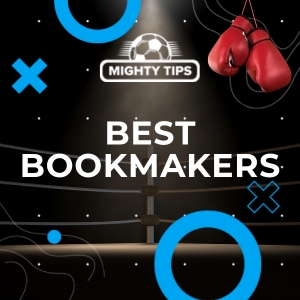Nowadays, UFC tournaments in different parts of the world seem commonplace—in its entire history, the promotion has already visited four of the six continents.
But 30 years ago, the league was in a completely different state: tournaments were held in small concert halls in residential areas, and there was no thought of going beyond the US.
Now the UFC opens new locations every year, from Saudi Arabia and Qatar to France and Azerbaijan. How did this become possible?
The UFC tried to break into the Japanese market in the 1990s, but with the arrival of White, they focused on the US.
They only returned to traveling abroad at the end of the 2000s.
Apart from a trip to Puerto Rico (a place with the status of an “unincorporated organized territory” under US administration), the first real international UFC tournament was held in Japan. This is not surprising: at that time, Japan was the center of the world of mixed martial arts.
The tournament attracted 5,000 spectators, and the main event for local fans was the debut of Japanese wrestling star Kazushi Sakuraba, who later earned the nickname “Gracie Killer” for defeating several members of the most prominent clan in MMA history.
Be the first to play here – Live dealer games at Voltage Bet
The next international UFC tournament was held in Gracie’s homeland. The Ultimate Brazil event took place thanks to the initiative of promoter Sergio Batarelli, who was close friends with one of the founders of the UFC, Bob Meirovitz. Despite the success of the tournament, which Batarelli noted in later interviews, Brazilians had to wait 13 years for the next event.
Before the Fertitta brothers acquired the promotion, the UFC visited Japan several more times. The promotion’s parent company, SEG, planned to create a separate UFC Japan division, which, according to the plan, was to be managed by local Japanese promoters, but the idea was soon abandoned due to financial problems and competition from the growing Pride and K-1.
A year and a half after Fertitta and White acquired the UFC, the promotion held its first tournament in the UK. UFC 38 was named Brawl at the Hall. In 2002, the event was held at the legendary Royal Albert Hall, whose walls usually echo with opera voices and musical instruments rather than the sounds of punches and fan cheers. The spectacular knockout of British taekwondo fighter Mark Weir, the upset of veteran Ian Freeman against the undefeated Frank Mir, and Matt Hughes’ second fight against Carlos Newton made it a memorable night for MMA in the UK.
The next one took five years to come. From 2002 to 2007, White and the Fertitta brothers were busy trying to survive in the US: first fighting for the legalization of MMA, then for the interest of viewers. After a brilliant first season of The Ultimate Fighter, the promotion signed a new deal with Spike TV. In the third season of TUF, the winner was Michael Bisping, a light heavyweight (at the time) from England. It was the perfect moment to return.
In the 2010s, the UFC made a global leap. By the end of the decade, almost half of the tournaments in a year were held outside the US.
The first trip in the new decade was to a new country. Tickets for the first tournament in Australia sold out in a few hours, with Nogueira, Velasquez, Bisping, Wanderlei Silva, and Cro Cop fighting. A couple of months later, the first UFC event in the UAE took place, which became one of White’s biggest failures in his career.
An open-air arena was built on Yas Island specifically for that tournament, and two title fights with two stars, BJ Penn and Anderson Silva, were added to the card. What could go wrong?
In 2014-2016, the UFC expanded its geography enormously: the Netherlands, the Philippines, South Korea, Mexico, Poland, Croatia + the number of tournaments in familiar locations increased. The roster also became more diverse: by 2018, fighters from Australia, Ireland, Russia, and England had joined the ranks of belt holders. But that was only the beginning.
In 2016, the Fertitta brothers sold the UFC to Endeavor (at that time, WME | IMG). “We are now focused on seeking new opportunities for the UFC and its talented fighters to ensure the continued growth and success of the sport in global markets,” said a press release after the deal was completed.


